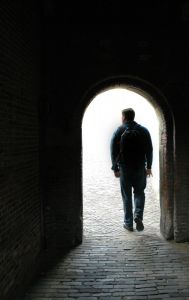Legalism and the Insecurity of Our Times
 Legalism and the Insecurity of Our Times
Legalism and the Insecurity of Our Times
Legalism is an ugly thing to those outside it, but often a beautiful thing to those within it. Legalism is any system whereby the merits of man contribute in any way to his standing with God. For those who have been delivered from the works-righteousness mentality, legalism is bondage, an oppressive system that distorts the grace of God and often turns out neurotic believers who wear themselves out trying to keep up. But to those within legalistic systems, legalism is a refuge from the insecurities of life and the uncertainties of our world.
This is one of the reasons why it is so difficult to talk someone out of a legalistic church. There is so much “certainty” and comfort in knowing exactly what one must do to remain in “right with God.” Legalism requires so little faith, because every aspect of life is defined and mandated. In contrast, the concept of grace and Christian liberty is a scary wilderness of uncertainty. Better to stay in the fortress (or prison).
This is not a new phenomenon. At the end of the Middle Ages, the predominant concern of Europeans was the fear of death. After years of bad weather and widespread famine in the 14th century culminating in the Black Death, life in the 15th century was bleak. As Carter Lindberg notes, “The shortness of life was never far from people’s minds” (The European Reformations, Blackwell, 1996). This situation fueled an obsession with concern for the afterlife. Enter the Catholic Church.
 Read
Read 

 Read
Read  Posted previously at SI on June 13, 2008. Reprinted with permission from
Posted previously at SI on June 13, 2008. Reprinted with permission from  Read
Read  Read
Read 


Discussion